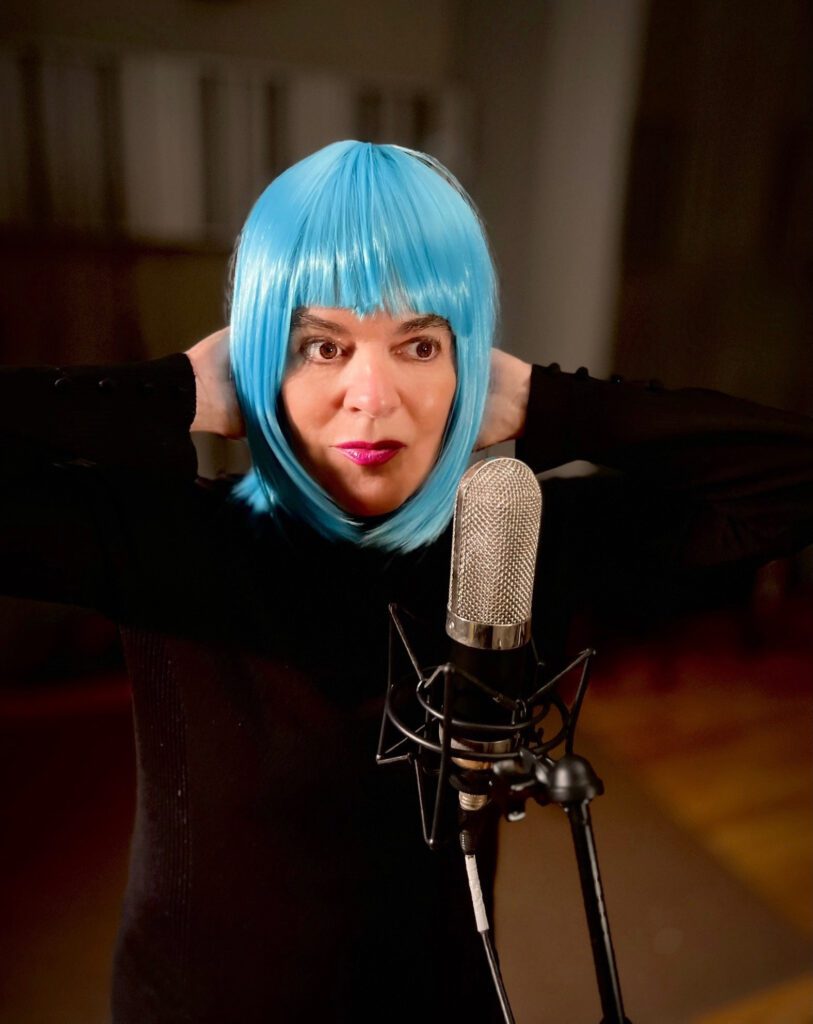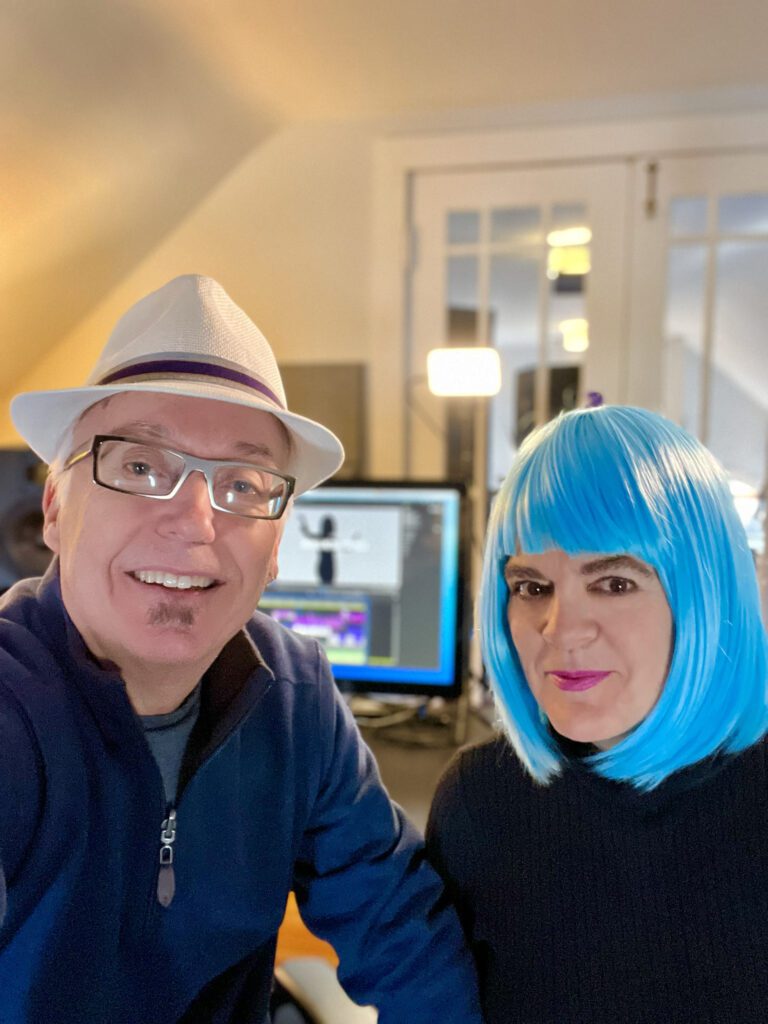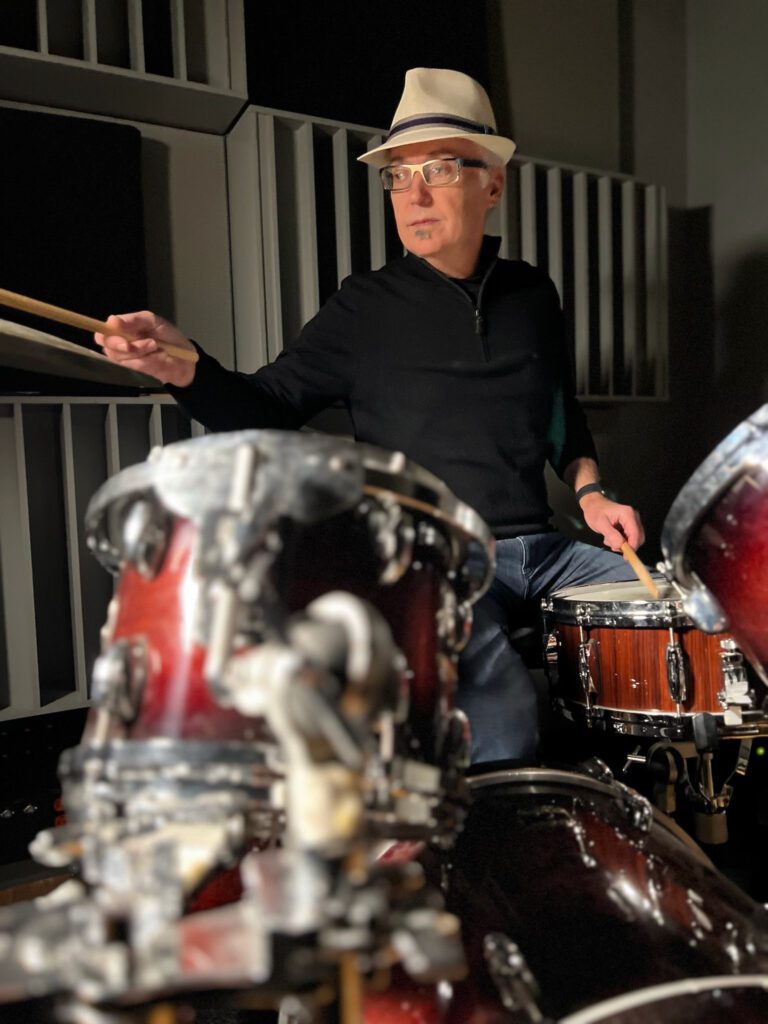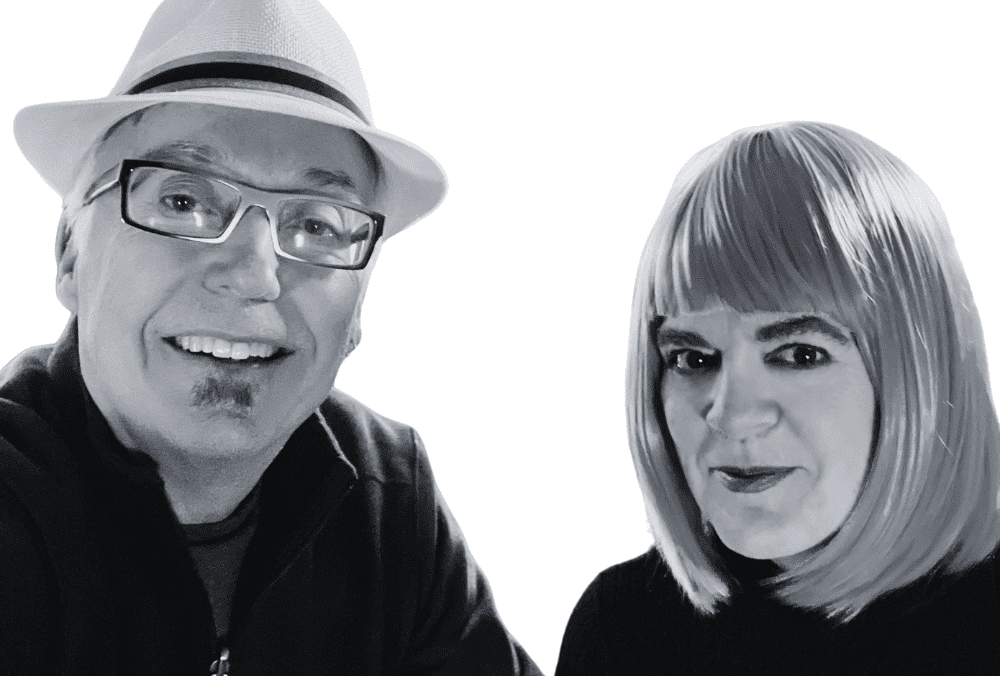Some songs are just breakup anthems. Chalumeau’ s “Lies” is something more—a razor-sharp reckoning with deception in all its forms. The powerhouse duo of Katherine Bergeron and Butch Rovan channel jazz-noir sophistication, bluesy swagger, and hard-hitting lyrical truth into a track that doesn’t just call out dishonesty—it exposes the entire ecosystem that lets it thrive.
With a smoky, cinematic sound reminiscent of classic Hollywood crime thrillers, “Lies” delivers a slow-burning groove packed with intrigue, bold brass, and lyrical punches that land with precision. “People are sheep, they don’t know their own minds,” Bergeron croons, setting the stage for a track that dissects manipulation, from failed relationships to the highest levels of power.
Written, recorded, and produced entirely by the duo in their home studio, the song carries the intimacy of a personal confession and the weight of a cultural critique. The accompanying Citizen Kane-inspired lyric video underscores the track’s deeper message—how narratives are shaped, controlled, and sometimes weaponized.
In this exclusive interview, Chalumeau takes us behind the scenes of “Lies”, diving into the inspiration, the creative process, and their fearless approach to storytelling through music. Get ready for a conversation as bold and unfiltered as the track itself.
“Lies” has such a powerful message about manipulation, dishonesty, and betrayal. What was the initial inspiration for writing this song?
I guess you could call “Lies” a kind of breakup song. Most everyone has had a bad breakup at some point in their lives and Butch and I are no exception. Those kinds of experiences never really leave you, no matter how much time has passed, and writing a song can be one way of dealing with it. So, when I found myself writing some humorous lyrics about an old relationship, Butch was right there beside me with his own memories, and we just kept going. As we did, though, the song turned into something bigger—a reflection on the ways we are deceived not just in love but in life; about the kind of people who tend to believe anything and the kind who take advantage of that, right up to our own public leaders. So, you might say that what started as a breakup song turned into something more like a protest song. And yet, given the great American tradition of hustlers and con men, we also know that people have a weakness for liars, and so the song tries to catch this vibe as well. We think of it as swing with a swagger, a dance song that calls attention to our current post-truth moment in order to shift the conversation.
The song carries a distinct bluesy, jazz noir vibe—almost like the score for a classic Hollywood crime thriller. How did you think about creating such a unique sound?
I tend to think that whatever sound you’re going for will evolve over time. In fact, an artist might end up having many sounds, because you’re ultimately looking for something that speaks both to and for the song you’re writing. The initial idea for “Lies,” for example, was for an up-tempo, R&B groove with a descending bassline—like Percy Mayfield’s 1961 classic, “Hit the Road Jack.” But that idea began to evolve as soon as we started adding the instrumentation. Butch is no stranger to big band music. In fact, some of his earliest professional gigs involved playing in, and writing charts for, jazz bands. His arrangement for “Lies” uses a thicker orchestration, with a classic Benny-Goodman-style horn section—1 clarinet, 2 alto saxes, and 2 tenor saxes—layered on top of the piano, bass, drums, and rhythm guitar, giving the band a brighter timbre. The density of the sound also made us want to slow down the tempo a bit. The final vibe really matched what the song is about. And, of course, Butch played all the horns himself!

The lyrics speak of how easily people can be influenced or misled. What are your thoughts on the current state of public discourse, particularly with the rise of misinformation in the digital age?
As long as there has been storytelling, there has been misinformation. There probably hasn’t been a time in history when people weren’t telling lies for their own gain. That’s why the song says, “it’s the oldest trick in the book.” Our lyric video makes reference to some old black-and-white film noir classics like Citizen Kane to show the power of the press in the business of swaying public opinion. But newspaper, radio, television, and other forms of mass communication in the 20th century now seem downright quaint by comparison to the current avalanche of information brought on by the 24-hour news cycle and the explosion of social media on the internet. We’re now living in an era where the concept of “fake news” has been normalized; where algorithms lead you only to the things you want to hear; where civil discourse and debate have all but vanished; and where public opinion is more divided than ever. If that doesn’t call for protest music, I don’t know what does. . .
You mentioned that the song also helped to “exorcise” certain people from your past. Was the writing process cathartic for you? How does songwriting help you process personal experiences and emotions?
Well, I’d say writing songs is probably better than burning sage! [laughter]. Seriously, the writing process is bound to be cathartic, especially when you’re dealing with issues that really matter to you. One of the things that happens as you write, in fact, is that you get perspective. As you translate feelings into melodies, you begin to see that those things that seem deeply personal to you are also universal. And that’s when the song takes on a life of its own, often turning in directions you never expected. It’s fun and ultimately very satisfying.
As a duo, you handle everything—writing, arranging, producing, performing, and video making. How does being so involved in every aspect of the process affect the final product? What are some of the challenges and rewards of working as a two-person team?
Yes, this project has certainly been all-consuming, but that’s actually the fun of it. When you’re so involved in every aspect, your final product becomes very personal, revealing a lot about your creativity and your character. Along the way, you keep discovering things. Each part of the process involves reflection, interpretation, and creative intervention, so as you progress, you end up understanding your song in many different ways. That’s particularly the case in making the lyric video, which, for us, is usually the last stage of the process. The video can give you a whole new perspective on the song and why you made it.
As for being a two-person team, we would have to say that we bring different strengths to the table—different sides of the brain, and different expressive and technological capacities—which make collaborations very satisfying. We’re constantly asking questions, and rethinking our approaches. We met years ago doing free improvisation, and that spirit still pervades our work ethic. In fact, when we’ve spent too many hours working together, we start reading each other’s minds. . . . Probably the biggest challenge we’ve experienced, then, is when we start something and we don’t already know what the other person is thinking! [laughter] In the end, our skill sets are very complementary. It’s a blast working together…

You are both professors, so you’ve seen firsthand how music shapes both intellectual and emotional development. In your view, what role does music play in fostering critical thinking and self-expression, especially in students?
Music study can play a huge role in developing a student’s critical capacities. Music is both a right-brain and a left-brain activity, which combines theory and practice: a quantitative dimension that calls for calculation and a qualitative dimension that calls for interpretation. This is especially the case for vocal music. One of the reasons songs hit us so hard has to do with the way they fuse the expressive and analytical realm of language with the affective realm of feeling. Learning to manage both is what great songwriting is all about.
Thinking about your dual roles as musicians and educators, how do you see the relationship between the university and the music industry? Do you think there’s a gap between what’s taught in the classroom and what’s happening in the ever-evolving music world?
This is a very interesting question. A decade ago, we would have said that there was a pretty big gap between the music classroom and the larger professional world of music. But now that gap is shrinking—for a lot of reasons. It’s partly to do with music curricula, which have expanded in recent years to make room for the study of very recent popular music. It’s partly to do with what you might call the professionalization of undergraduate studies, where students have more opportunities to prepare for real-world professions in their lives after college. And it’s partly to do, of course, with student demand. More and more, students want to be able to study things that relate to their interests and passions, and music departments want to attract students, so they have been incentivized to adapt. As educators who have taught a wide range of music disciplines—from history to theory to technology to songwriting—we believe strongly that there is (and should be) room for all of it. In short, we believe in a very large tent. We would argue, furthermore, that traditional music studies, along with traditional liberal arts disciplines, may even provide a greater competitive advantage in today’s music marketplace, not only because these disciplines provide important skills and perspectives but also because they constantly open up new ways of thinking about the world and our place in it.

Looking ahead, what’s next for Chalumeau? Are there any exciting projects or new directions you’re exploring for the future?
Right now, we are working on two new releases for February and March. The first one is a counterpart to “Lies,” a song called “La Vérité” (or “The Truth” in French). It’s a French bossa nova with a quiet but very honest declaration to an ex-lover, sung in the language of love. That’s scheduled for release on Valentine’s Day, so we’re calling it our Anti-Valentine . . . . The next one is “Hide,” a hard-hitting rocker about having someone’s number and not letting them off the hook. That will be out in mid-March. There are other new songs lined up for April and May, and we expect to bring out our full album, called “Blue,” sometime in June or July. And yes, we are also looking to put a band together to take on the road sometime soon. We are excited to add a face-to-face audience to our wonderful audience of online listeners.
When listeners hear “Lies,” what is the one key message or emotional takeaway you hope they walk away with? What do you want people to remember most about the song?
Practice discernment. You never know when someone is trying to mess with you.






